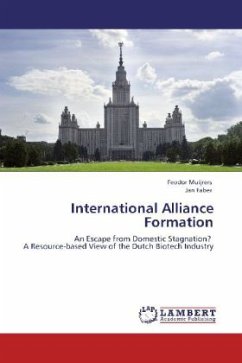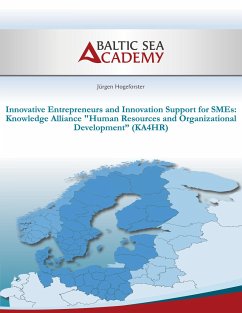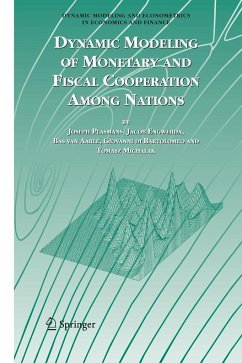
International Alliance Formation
An Escape from Domestic Stagnation? A Resource-based View of the Dutch Biotech Industry
Versandkostenfrei!
Versandfertig in 6-10 Tagen
32,99 €
inkl. MwSt.

PAYBACK Punkte
16 °P sammeln!
Over the past decade the biotech industry within the Netherlands has attracted growing attention in the political debate concerning the limited growth of this industry compared to their European counterparts. In this discussion the insufficient exploitation of knowledge in commercial products and services is repeatedly mentioned as an important element for stagnation of industry growth. Compared to other countries, most of the Dutch biotech firms are relatively small and in an early phase of development. This phenomenon is partly caused by the unfavorable investment climate in the Netherlands ...
Over the past decade the biotech industry within the Netherlands has attracted growing attention in the political debate concerning the limited growth of this industry compared to their European counterparts. In this discussion the insufficient exploitation of knowledge in commercial products and services is repeatedly mentioned as an important element for stagnation of industry growth. Compared to other countries, most of the Dutch biotech firms are relatively small and in an early phase of development. This phenomenon is partly caused by the unfavorable investment climate in the Netherlands and the limited availability of large domestic organizations for Dutch SMEs to form alliances with. International alliance formation seems a good alternative for Dutch biotech SMEs to overcome these limitations and to realize growth and development. This study aims to identify which specific characteristics stimulate Dutch biotech SMEs to collaborate with individual international organizations.












